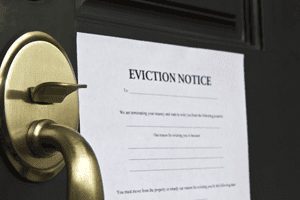Right to rent Key information
• You must check that a tenant or lodger can legally rent your residential property in England.
• The way EU, EEA and Swiss citizens prove their right to rent has changed.
• From 1 July 2021, EU, EEA and Swiss citizens need to prove their rights in the UK, including their right to rent, either using the online checking service or with a physical immigration document.
• You can use the Home Office online checking service on GOV.UK to view the immigration status of existing and prospective tenants. The service is simple, secure, free to use and enables checks to be carried out by video call. You do not need to check physical documents if you use the online checking service. Information about an individual’s right to rent is provided in real-time directly from Home Office systems.
• You could face a civil penalty if you rent your property to someone who does not have the right to rent if you have not carried out a correct right to rent check.
• You should not discriminate when conducting right to rent checks. See the code of practice for landlords for more information.
You can download the latest Right to rent guide for April 2022.
Using the online checking service
• You can use the Home Office online checking service to check someone’s right to rent if your tenant: – has a valid biometric residence card or permit (BRC/P) – has settled or pre-settled status under the EU Settlement Scheme (EUSS) – has an eVisa
• Those who have applied to the EU Settlement Scheme or for a UK visa (including permission to stay) using the ID Check app or by visiting a Visa Application Centre or Service and Support Centre, will use their UKVI account credentials to log into the online View and Prove service on GOV.UK, which is where they can access their online immigration information. This is called an eVisa. Most EU, EEA and Swiss citizens will have an eVisa and are required to use the online checking service to prove their right to rent.
• To carry out an online right to rent check, you will need the applicant’s birth date and ‘share code’. You can then complete the check online by visiting: GOV.UK/view-right-to-rent
• Your tenant’s share code will be valid for 30 days from when they create it. At the end of the 30 days, the code will no longer be valid, and you will no longer have access to your tenant’s immigration information, unless they provide you with another, new share code.
• If someone does not have an eVisa you can check which types of documents someone can use to prove their right to rent in England.
• A guide for EU, EEA and Swiss citizens about viewing and proving their immigration status (eVisa) is available on GOV.UK
• Support is available for landlords via the Landlord Enquiry Helpline by calling 0300 790 6268 or queries about the Right to Rent Scheme can be emailed to: [email protected]
Frequently asked questions
What is the right to rent scheme?
• The right to rent scheme was introduced as part of a suite of measures designed to tackle and deter illegal immigration. It is intended to prevent individuals without lawful immigration status in the UK from accessing accommodation in the private rented sector; and to support efforts to tackle those who exploit vulnerable migrants, often housing them in very poor conditions.
Why do landlords carry out right to rent checks?
• Landlords are required to carry out simple checks, applicable to everyone, including British citizens, to ensure the individual has lawful status in the UK before they rent a property to an individual. There are penalties for landlords who fail to complete the checks and who are later found to have rented to someone without a right to rent.
• There are two types of right to rent checks: a manual document check and an online check. The type of check a landlord needs to carry out will depend on how the individual has been granted their immigration status, and in some circumstances, the individual’s preference.
What is the Home Office right to rent an online checking service?
• The online service is simple, secure and free to use and enables checks to be carried out by video call. Landlords do not need to check physical documents. The individual’s right to rent information is provided in real-time directly from Home Office systems.
• The online service is customer-led. Suppose an individual notices an inaccuracy in their data. In that case, they can contact the Home Office for support to resolve this before sharing their details with their prospective or current landlord.
• Landlords must use the ‘View a tenant’s right to rent in England service’ to carry out an online check. Landlords will not have a defence against liability for a civil penalty if they view or copy the details provided by the individual.
What if an individual has submitted an application to the EUSS up to and including 30 June 2021, but has not received a decision?
• EU, EEA and Swiss citizens, and their family members, who have made an application to the EUSS on or before 30 June 2021, and have not yet been granted status, can continue to live in the UK and have a right to rent until their application is finally determined. This includes pending the outcome of any appeal against a decision to refuse status.
• Those who make an application before, but which remains outstanding after 30 June 2021, will be able to rely on their Certificate of Application as proof of their right to rent when this is verified by the Home Office Landlord Checking Service (LCS).
• To verify the certificate of application, a landlord must request a right to rent check from the LCS using the online form ‘request a Home Office right to rent check’ on GOV.UK
• Increasingly, individuals will receive their Certificate of Application digitally. This will enable them to use the Home Office online service to prove their right to rent.
Are landlords required to conduct retrospective checks on EU, EEA and Swiss citizens?
• There is no requirement for landlords to carry out a retrospective check on EU, EEA and Swiss citizens who entered into a tenancy agreement up to and including 30 June 2021. Landlords would maintain a continuous statutory excuse against liability for a civil penalty if the initial check was undertaken in line with legislation and published guidance at the time.
• However, we recognise that some landlords may wish to conduct retrospective checks. Suppose a landlord chooses to carry out a retrospective check. In that case, they must ensure that they do so in a non-discriminatory manner.
• If, when carrying out a retrospective check, a landlord discovers that an existing tenant no longer has a right to rent, they do not need to evict the tenant. The landlord must make a report via GOV.UK to the Home Office using the online form to maintain their statutory excuse.
What should a landlord do if they find an existing tenant has not applied to the EUSS after 1 July 2021?
• Landlords should advise their tenants to apply to the EUSS immediately in order to regularise their
immigration status. Where an individual has reasonable grounds for missing the application deadline (30 June 2021) they will be given a further opportunity to apply. They can make an application free of charge.
• If a landlord discovers that an existing tenant no longer has lawful status in the UK, they do not need to take action to evict the tenant. However, they must make a report via GOV.UK to the Home Office using the online form, to maintain their statutory excuse.
• The criminal offence, of knowingly letting to a person without the correct immigration status, is for the most serious cases. It is not intended for landlords who comply with the right to rent scheme and simply make a mistake.
An EEA citizen has difficulties accessing the Home Office online services, where can they go for assistance?
• Users who require further assistance can contact the UKVI Resolution Centre, which provides telephone and email support to all individuals using the online immigration status services. This includes supporting users through the online journey:
– helping them to access or recover their account
– helping them to update their personal details
– sharing a status on their behalf if they are unable to do so themselves
• The Resolution Centre will also be able to assist users who are experiencing technical issues with their online immigration status, and where necessary, enable their status to be verified through alternative means.
• If the individual needs access to a device or the internet, many local libraries have computers where they can access the internet. Please visit your local library.
• Individuals can find information on how the Home Office uses and protects their personal data by reading the following privacy notices:
– Borders, immigration and citizenship
– View and Prove
What guidance is being given to landlords to avoid discrimination when carrying out a right to rent check, and what should an individual do if they feel they have been discriminated against whilst undergoing a right to rent check?
• The Home Office has published statutory codes of practice on GOV.UK for employers and landlords on how to avoid unlawful discrimination when undertaking checks, and clearly stipulates landlords should provide individuals with every opportunity to demonstrate their right to rent. Landlords should not discriminate on the basis of race, or any of the other protected characteristics. We are clear that those who do discriminate are breaking the law.
• Anyone who believes they have been discriminated against, either directly or indirectly, may bring a complaint before the courts.
• Where individuals need expert advice and support on discrimination, they can contact the Equality Advisory Support Service (EASS) on 0808 800 0082. Further information can be found on the Equality Advisory Service website.
Why is the Home Office continuing with the right to rent when it is discriminatory?
• The right to rent scheme is lawful. On 21 April 2020, the Court of Appeal ruled the right to rent scheme is lawful and confirmed it does not breach human rights laws. On 31 May 2021, theSupreme Court refused JCWI’s request for permission to appeal that ruling, putting an end to the legal challenge.
Information provided by the courtesy of the UK Government.
The British Landlords Association is a free national landlords association for commercial & residential landlords. Why not join us today!
Our top read blogs:
Landlord Electrical Safety inspection report (EICR) 2021 Guide
Government extends moratorium on commercial property evictions to March 2022
Debt respite Scheme: Tenant breathing space legislation guide for landlord
Forfeiture of lease – Forfeiting Commercial lease under COVID-19
How to deal with a tenant deposit dispute | Fair deposit deductions 2021
Disclaimer:
This post is for general use only and is not intended to offer legal, tax, or investment advice; it may be out of date, incorrect, or maybe a guest post. You are required to seek legal advice from a solicitor before acting on anything written hereinabove.






